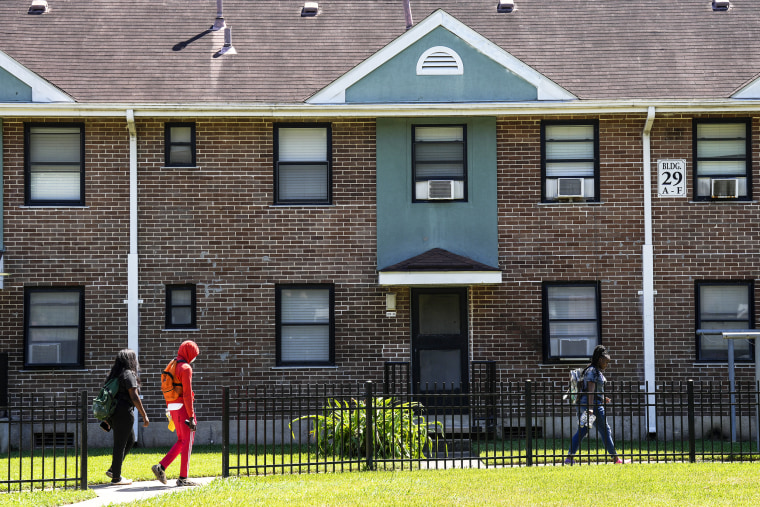WASHINGTON — The government averted a rise in homelessness during the height of the coronavirus pandemic, leaders of the Department of Housing and Urban Development said Tuesday.
HUD research suggests "that a rise in homelessness was averted during the height of the COVID-19 pandemic, when low-income families faced growing housing instability risks and cost burdens, and the federal government deployed historic funding and resources to keep people stably housed," four HUD leaders said in a release. Those resources included a child tax credit, emergency rental assistance, expanded unemployment benefits and a national eviction moratorium, they said.
Sheltered homelessness decreased by 17% from 2019 to 2021, according to an annual HUD report for 2021 released last month. HUD leaders say the drop was driven more by preventing people from becoming homeless than by people experiencing homelessness getting permanent housing.
“The lesson of 2021 is that we can slow the inflow into the homeless system by preventing evictions,” the four HUD leaders said.
Still, a record 8.53 million renter households had "worst case needs" in 2021, according to another HUD report released this week, the most reported since the department began estimating in 1978. HUD defines households with the "worst case" needs as those of very low-income renters "who do not receive government housing assistance and who pay more than one-half of their income toward rent, live in severely inadequate conditions, or both."
HUD Secretary Marcia Fudge said the Biden administration prevented "millions of people from experiencing evictions and housing loss."
"While we didn’t solve the challenge of homelessness — only ensuring an adequate supply of affordable housing and access to supportive care can do that — these data provide valuable insights about how we address homelessness and ensure every person has a safe and stable place to call home," she said in a statement.
A federal eviction moratorium was lifted in August 2021 after a group of landlords challenged it at the Supreme Court. The first moratorium was established in March 2020.

